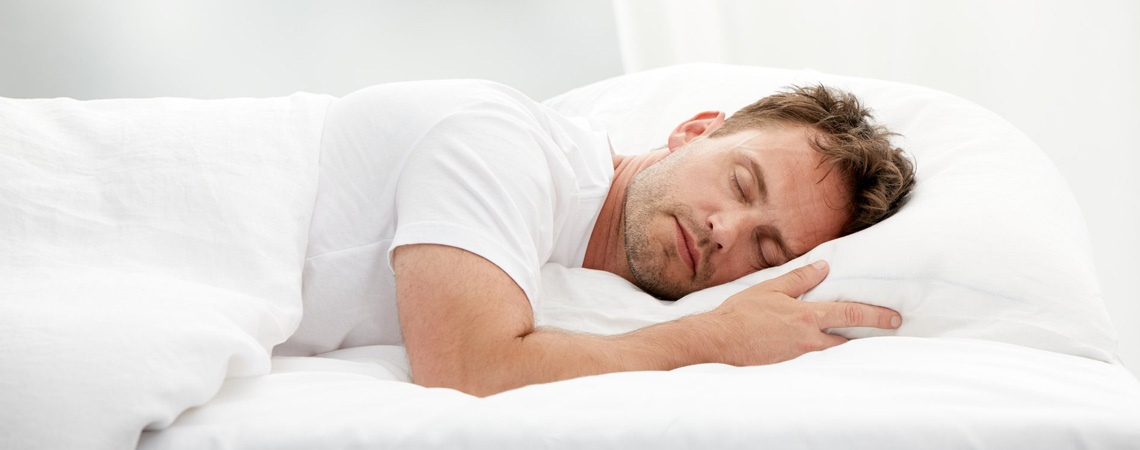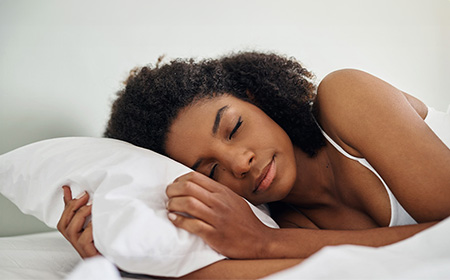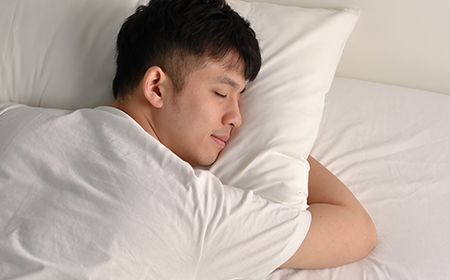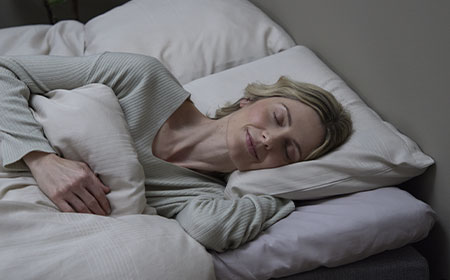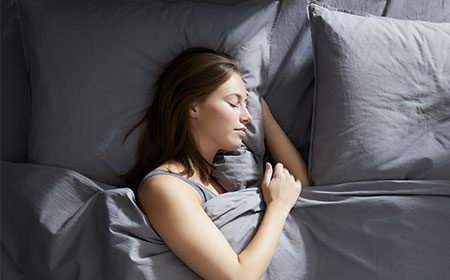Getting the perfect night's sleep is vital for a healthy lifestyle. Read on and get 10 useful tips on how to create the best routine before bed and which environments can help you sleep better.
How to get a better night's sleep?
Check out these 10 tips below on how to get a better night's sleep. On average, an adult human needs 7-8 hours of sleep. Of course, age and a number of other factors are crucial in determining how many hours of sleep you need: for example, pregnancy, illness or exceptional performance. But the quality of your sleep is also very important in terms of how many hours’ sleep you need. Read on and find out how you can get the perfect night's sleep.
1. Avoid caffeinated drinks
After 2pm you should stop drinking coffee, tea, fizzy drinks and other caffeinated beverages. Caffeine has a half-life of between three and seven hours. This also explains why some people can drink several cups of coffee before bedtime, while others lie, tossing and turning all night after drinking just half a cup of coffee.
2. Avoid alcohol
Alcohol has a negative impact on the quality of your night’s sleep. Maybe you find it easier to fall asleep after a couple of beers or glasses of wine, but alcohol often makes you sleep more turbulently and less deeply. Read more about how alcohol affects your sleep here.
3. Avoid eating your main evening meal too close to bedtime
As much as you can, schedule your evening meal early in the evening, so that your digestion doesn't have to work overtime. This will help avoid an upset and rumbling stomach.
4. Sleep in the dark and at the right temperature
There is no such thing as an ideal temperature for everyone. But in general, it is recommended that the temperature in the bedroom preferably stay between 15 and 20 degrees, and that your bedroom is aired before you head to bed. It's also a good idea to sleep in total darkness. Light reduces our production of the hormone, melatonin, which affects our quality of sleep. If you often experience problems getting to sleep, it may be a good idea to invest in good quality blackout curtains or blinds.
5. Stop exercising late at night
Although exercise is both healthy and good for your night’s sleep, a jog or session in the gym late at night may make it difficult for you to get off to sleep. This is because your body temperature needs time to drop after exercising, and if it doesn't then this can affect your sleep.
6. Go to the toilet before going to bed
Make sure your bladder is empty, so that you don't get disturbed during the night by undue visits to the toilet.
7. Remove electronic equipment from the bedroom
Do not have your mobile phone in your bedroom, or make sure you set it to “do not disturb”, so neither vibrations, ring tones or light from the screen wake you up during the night. Light from electronic devices also has the unfortunate side effect of getting your body to believe that it is supposed to be awake.
8. Get a good bed
It is important to find a bed that suits you perfectly, but choosing the right bed and mattress can be difficult. It may also be a good idea for couples who sleep together, to sleep in separate beds positioned side by side, instead of a shared bed. This way you will avoid waking up if your sleeping partner is having a restless night. It is also important to find a mattress that suits your weight exactly. Get advice on choosing the right mattress, and find out whether a foam mattress or spring mattress is more suited for you.
9. Avoid stress and anxiety
This is probably easier said than done, but stress and anxiety are not good for your night’s sleep. Let go of your thoughts, when it's time to sleep. Avoid sitting up and working, and turn off your mind with a book or film. If you still cannot sleep because your mind is working overtime, it may be a good idea to write down your thoughts on a piece of paper just before bed. This will help release your thoughts, so that your brain can have peace.
10. Get up at the same time every day
A good routine is to get up at the same time every single day in order to create a fixed schedule and regularity in your sleep rhythms. Even though you go to bed later once in a while, you will probably have time to catch up on your lack of sleep in the course of the following days, either by going to bed slightly earlier or by getting several hours’ deep sleep. Be aware, however, that prolonged lack of sleep is unhealthy. Some people find it helpful to have fixed routines every day before bedtime. They help them relax and prepare their bodies and hearts for the fact that bedtime is approaching.
